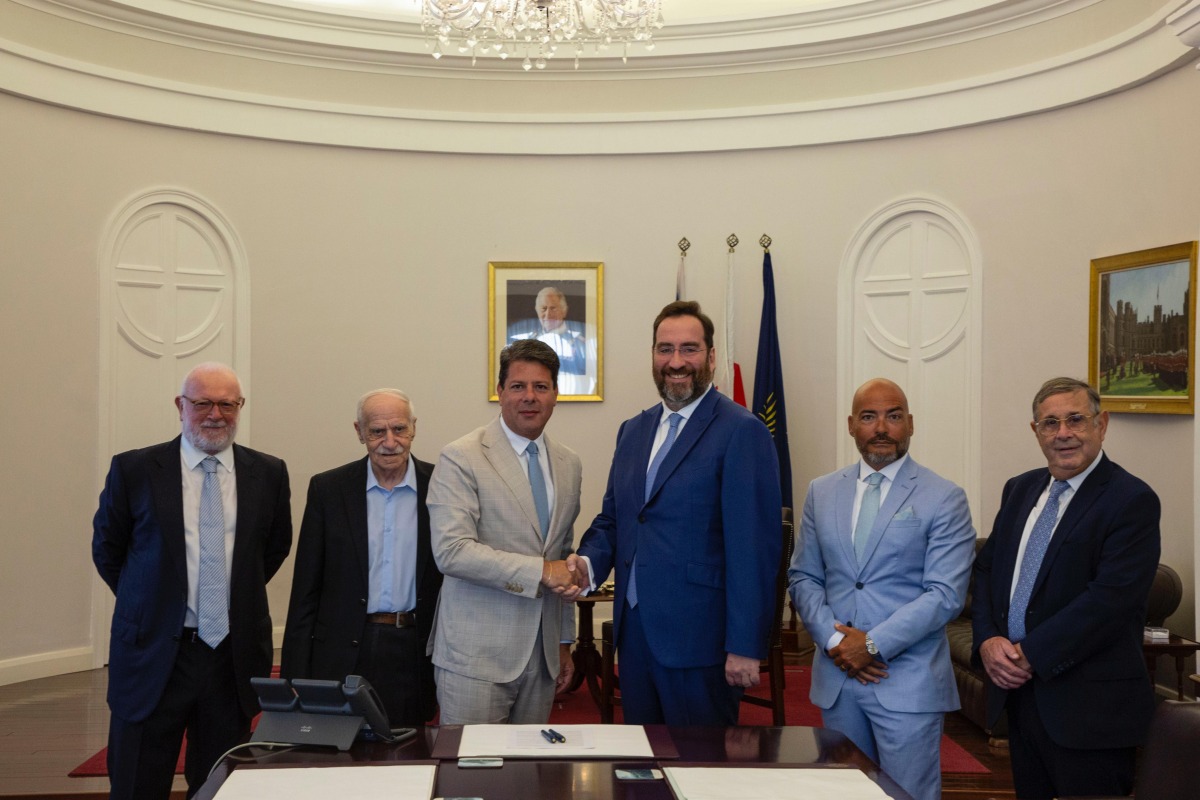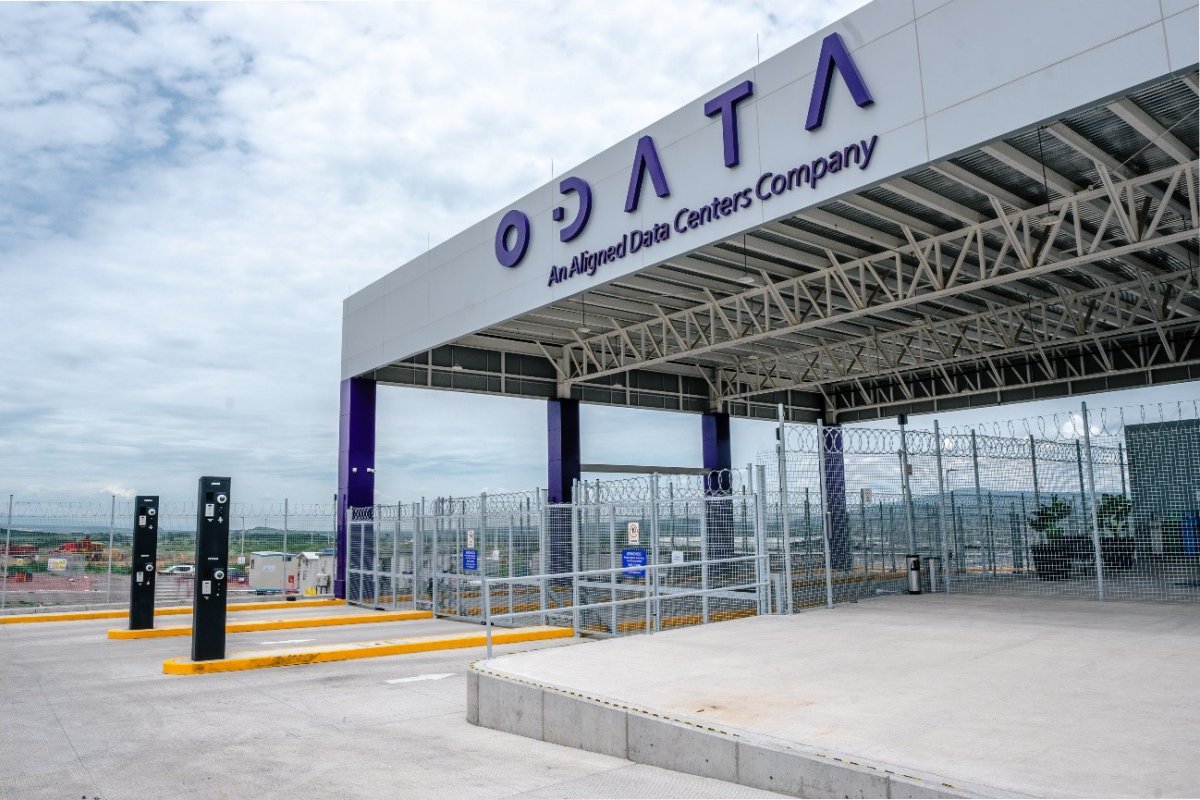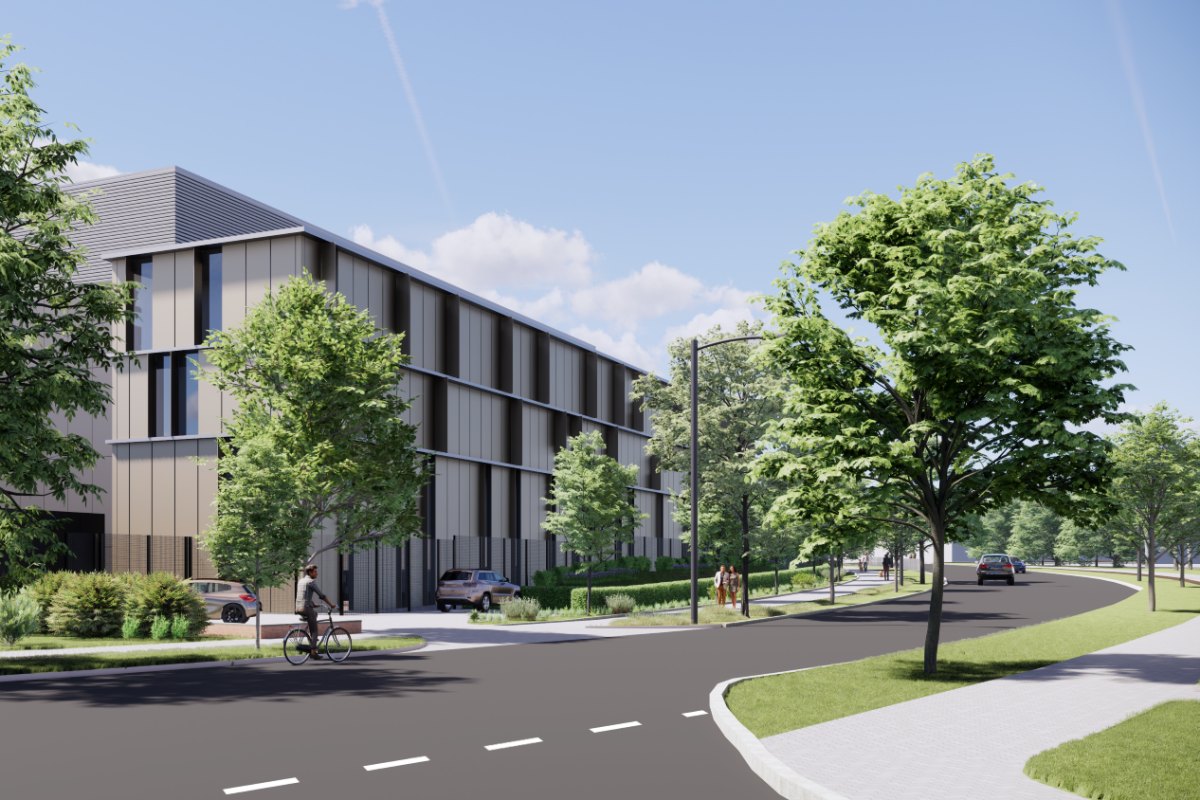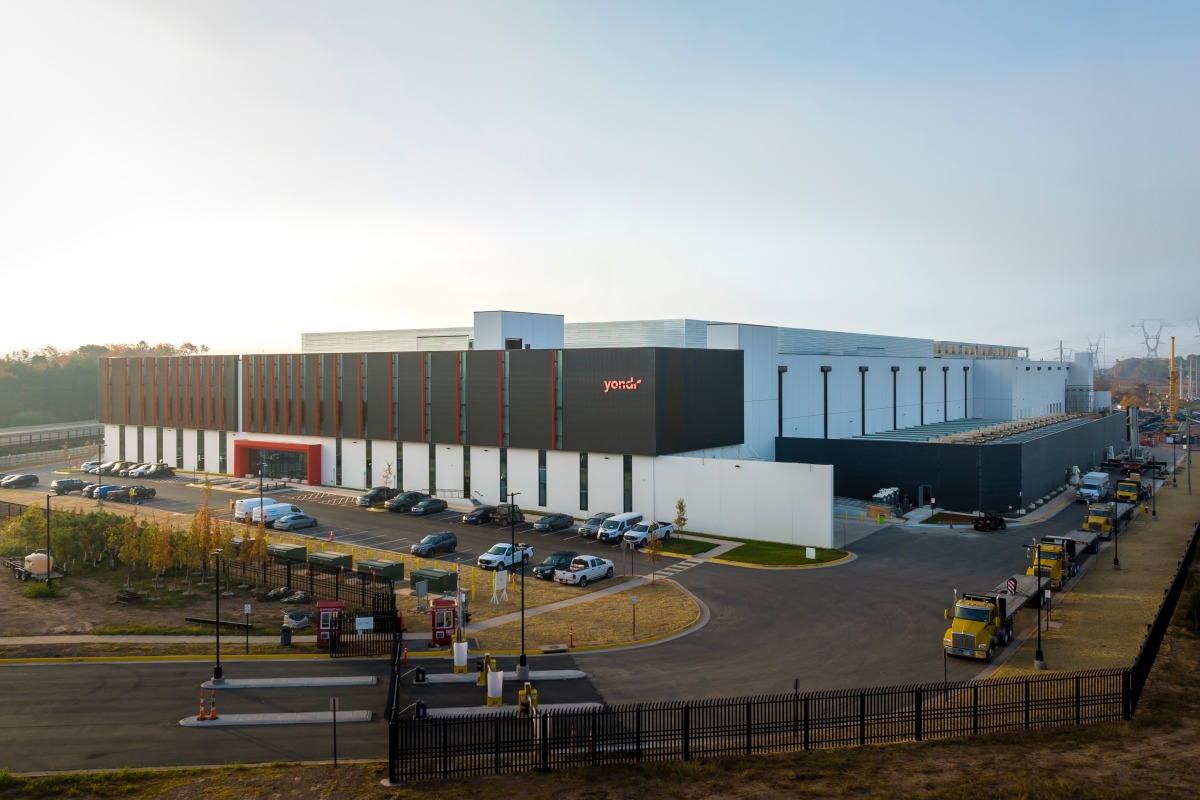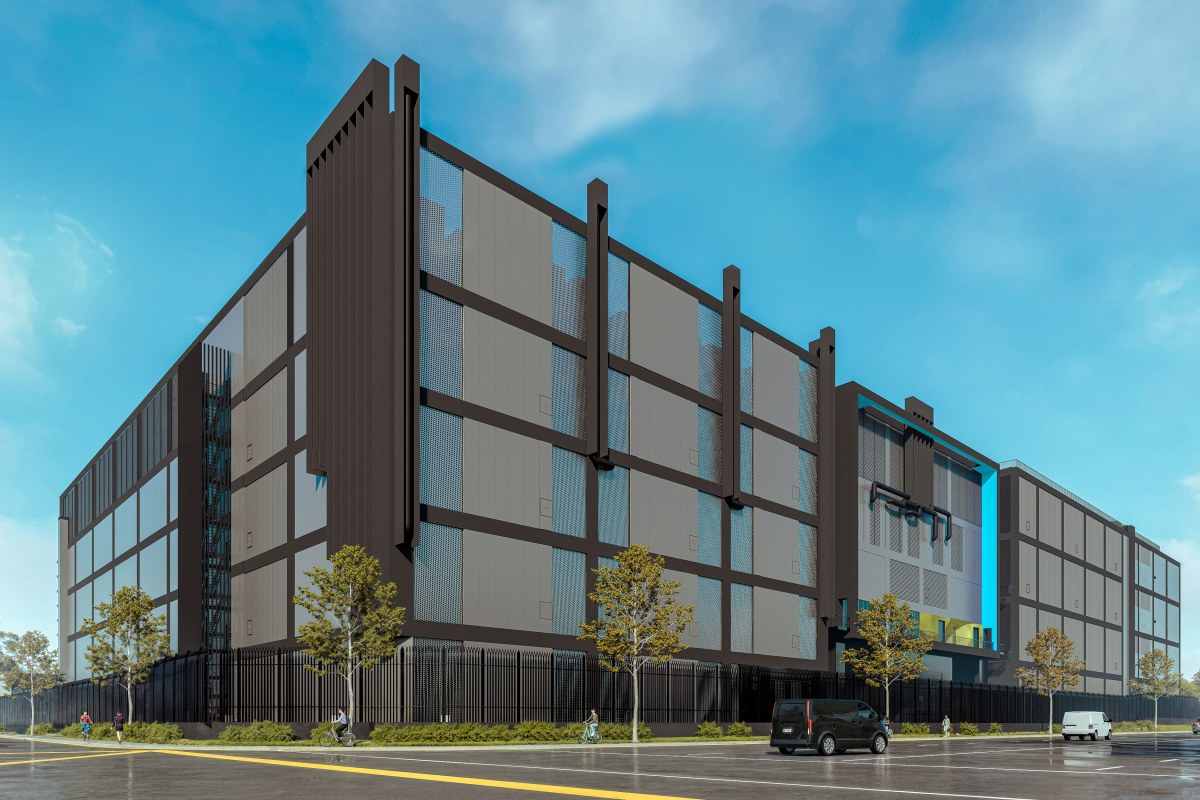Data Centre Build News & Insights
Data Centre Build News & Insights
News
Quantum Computing: Infrastructure Builds, Deployment & Innovation
Quantum-ready FN-DSA (FIPS 206) nears draft approval
NIST has submitted the draft standard for FN-DSA (FIPS 206), the FALCON-based digital signature scheme, moving it closer to formal adoption as part of the post-quantum cryptography (PQC) standardisation process.
FN-DSA was selected alongside ML-DSA and SLH-DSA for PQC standardisation, but its approval has taken longer due to mathematical complexity and refinements to its components. With the draft now submitted, the first release is imminent.
The draft will be published as an Initial Public Draft (IPD) for open review. While the timeline has not been finalised, it may coincide with the NIST PQC Standardisation Conference in September 2025.
Based on past schedules, the review period is expected to last around one year, with a final standard likely in late 2026 or early 2027.
Industry preparations
Companies such as DigiCert, a US-based digital security company, are preparing for FN-DSA’s rollout. To avoid confusion around naming and identifiers, DigiCert has stated it will not implement FN-DSA in production until the standard is finalised.
In the meantime, the company will make the IPD version available for experimentation through DigiCert Labs, which already hosts FALCON for testing. This will enable the wider community to trial the draft standard before formal approval.
Role in post-quantum cryptography
FN-DSA is seen as a special purpose scheme rather than a replacement for ML-DSA. Its smaller signature sizes could reduce certificate chain lengths, which is valuable in environments where efficiency is a priority.
However, due to the complexity of FALCON’s signing process, FN-DSA is less suited for frequently signed leaf certificates. Instead, it is expected to be more useful for root and intermediate certificates.
NIST has also signalled potential adjustments to signing and sampling methods, which could broaden FN-DSA’s applications once the draft specification is published.
The progress of FN-DSA marks another milestone in the move towards quantum-safe standards. Organisations are being encouraged to begin preparation now by testing draft algorithms, trialling implementations, and developing crypto-agility strategies to ensure a smooth transition as PQC standards are finalised.
For more from DigiCert, click here.
Joe Peck - 8 September 2025
Commercial Real Estate: Property Developments, Trends & Infrastructure
Data Centre Build News & Insights
Data Centre Business News and Industry Trends
Data Centre Projects: Infrastructure Builds, Innovations & Updates
News
Zoho to open new UK data centre
Zoho, a provider of cloud-based business software and productivity tools, has announced it will open a new UK data centre in the first quarter of 2026. The announcement comes alongside 43% growth in the UK and a tripling of staff numbers over the past two years.
The new facility will allow customers to retain data within the UK, addressing demand for greater data sovereignty, particularly in sectors such as financial services and the public sector. The company will also relocate its UK office from Bletchley to Milton Keynes in the same quarter to support further team expansion.
Strengthening UK operations and compliance
Zoho’s UK strategy is built around its Transnational Localism programme, which provides local teams to support customer needs and contribute to self-reliant regional economies. The latest growth expands its customer-facing staff across sales, support, and marketing.
Sachin Agrawal, UK Managing Director of Zoho, says, "In a constantly moving landscape impacted by geopolitical tensions and economic instability we are focusing deeply on enhancing the customer experience we provide to our UK customer base.
"We understand the shift to customers wanting to host their data within the boundaries of the UK, which is particularly important in industries such as the public sector and financial services. Data privacy and protection continue to be at the core of our operations and is enhanced further with our new data centre.
"Investment in our new office space enables us to continue to strengthen our growing team, ensuring that we not only deliver the best software, but the best service and support from those with excellent local knowledge of the market."
At its Zoholics Birmingham event, Zoho also confirmed new compliance features for UK customers. Zoho Books is now recognised by HMRC for Making Tax Digital (MTD) for Income Tax Self Assessment (ITSA), adding to its existing approval for VAT. From April 2026, this regulation will apply to sole traders with qualifying income above £50,000 and from April 2027 to those above £30,000.
Joe Peck - 8 September 2025
Data Centre Architecture Insights & Best Practices
Data Centre Build News & Insights
Data Centre Projects: Infrastructure Builds, Innovations & Updates
News
Pelagos planning ambitious 250MW facility in Gibraltar
Pelagos Data Centres, a developer of large-scale data centre infrastructure, has announced plans to build a major new data centre near the Port of Gibraltar, with capacity of up to 250MW by 2033.
Unveiled at a launch event at the offices of Gibraltar’s Chief Minister, Fabian Picardo, the project represents an investment of around £1.8 billion. It is the largest development currently planned in the territory by value, and among the largest in its history.
The facility will be built in five phases on a 20,000m² site. The first stage is scheduled to be operational in late 2027, with later phases delivered at intervals of around 18 months.
Transforming Gibraltar’s digital landscape
Funded entirely by private investment and backed by the Government of Gibraltar, the project is positioned as a step forward for the territory’s digital and economic development. It is intended to help meet Europe’s growing demand for data centre capacity, particularly as AI adoption accelerates across industries.
The site will operate independently of Gibraltar’s existing power grid and include a public leisure facility as part of the development.
Konstantin Sokolov, Chairman of Pelagos Data Centres, comments, "The scale of this project marks a new chapter for Gibraltar and for Europe's digital capabilities.
"Just as electricity and the internet transformed society in the past, AI is now emerging as the defining technology of our time with the power to redefine entire industries, economies, and communities.
"With our new facility, Pelagos Data Centres is laying the foundation for the next era of AI-driven innovation, positioning Gibraltar as a strategic hub and enabling Europe's brightest minds to unlock the full potential of this revolutionary technology."
Chief Minister Fabian Picardo adds, "I am delighted that Pelagos Data Centres have decided that Gibraltar is the place to establish their first facility and that the whole community will benefit from their massive investment and its huge economic impact.
"I look forward to this project becoming a reality as soon as possible."
Jobs, efficiency, and sustainability
The development is expected to create up to 500 jobs during construction and around 100 permanent positions once operational. Pelagos currently employs 50 full-time staff across London and Gibraltar, and plans to expand its local workforce significantly.
The facility will be built to Tier III standards, carrier-neutral, and designed to serve both public and private sector clients. It will pursue international certifications covering information security, quality, sustainability, and energy management, with a targeted Power Usage Effectiveness (PUE) of 1.2 or better.
The project’s sustainability strategy includes powering operations with a combination of renewable energy and liquefied natural gas (LNG), with the aim of achieving net-zero operational emissions by 2030.
Cooling systems will be designed to minimise water use, and the company is exploring heat recovery options to support community projects.
Sir Joe Bossano, Minister for Economic Development and Inward Investment, says, "This is the most significant infrastructure investment in Gibraltar since the early 1990s, when the GSLP Government brought state-of-the-art telecommunications as inward investment from the United States and made possible the creation of a centre for online services. Then, we future-proofed Gibraltar's economy. Today, we are doing so again.
"The technology of the future - on which every advanced economy will depend - will be artificial intelligence. AI requires data, processing power, and energy resources on a scale never before seen.
"The Ministry for Economic Development will put all its resources at the service of this initiative to ensure that it is delivered in the shortest possible time. In this field, speed of delivery is everything. Gibraltar should be the fastest jurisdiction on the planet when it comes to delivery."
A further technical briefing and press conference is planned for the first quarter of 2026, ahead of construction beginning later that year.
Joe Peck - 5 September 2025
Data Centre Build News & Insights
Data Centre Business News and Industry Trends
Data Centre Projects: Infrastructure Builds, Innovations & Updates
Insights into Data Centre Investment & Market Growth
ODATA secures $1.02bn green financing for data centres
ODATA, a Latin American data centre provider and part of Aligned Data Centers, has secured $1.02 billion (£757 million) in green financing to support sustainable data centre infrastructure across Latin America.
It is the largest financing of its kind in the region’s data centre sector, bringing ODATA’s total funding to $2.25 billion (£1.67 billion).
The financing will be directed towards projects that meet sustainability benchmarks, including renewable energy use, improved efficiency, and responsible construction practices.
Supporting sustainable growth in Latin America
"This historic achievement, representing the largest issuance of sustainable data centre financing in Latin America, has allowed ODATA to build a solid financial structure," says Rafael Bomeny, CFO of ODATA. "With these high-quality resources, we're incredibly well-positioned to empower our customers in their digital infrastructure expansion across the region.
"This green financing also reinforces our mission to contribute to Latin America's sustainable development by leading the way in adopting innovative technologies that drive a more efficient future for our customers and communities."
Funding has been provided by a syndicate of international banks, including Apterra, BNP Paribas, Crédit Agricole CIB, Deutsche Bank, MUFG Bank, Natixis, Nomura, Société Générale, and SMBC.
The new investment will support projects in Brazil, Mexico, Chile, and Colombia, strengthening ODATA’s position in the regional market and enabling cloud and AI infrastructure growth.
Innovation and energy strategy
"Sustainability is a top priority for ODATA," Rafael continues. "In addition to major investments in renewable energy, we adopt designs that seek the highest levels of energy efficiency without wasting water.
"With this new green financing, we can continue contributing to the development of Latin America’s digital infrastructure while upholding the highest standards of sustainability."
ODATA is the first hyperscale data centre operator in Latin America to self-produce 100% renewable energy in Brazil.
The company has also introduced the Delta Cube (Delta³) air-cooling system, developed by Aligned Data Centers, which supports high-density power loads of up to 50kW per rack and can integrate with liquid cooling technologies.
For more from ODATA, click here.
Joe Peck - 5 September 2025
Commercial Real Estate: Property Developments, Trends & Infrastructure
Data Centre Build News & Insights
Data Centre Business News and Industry Trends
Data Centre Projects: Infrastructure Builds, Innovations & Updates
8x8 opens new data centre in France
Cloud communications provider 8x8 has opened a new data centre in France to meet growing demand for in-country data hosting and regulatory compliance.
The facility is designed to support France’s data sovereignty and residency requirements, including GDPR and local hosting mandates. It also seeks to provide low-latency access and enterprise-grade reliability for businesses and public sector organisations.
Expansion in the French market
The announcement follows a year of growth for 8x8 in France. The company appointed Christian Laloy as Country Lead, strengthened its collaboration with IT services group SCC, and formed a partnership with the French trade association for customer relations (AFRC).
“While others choose to operate remotely, we’re investing locally,” says Christian Laloy, Country Manager, France at 8x8. “Some providers choose not to locate in France and, in my mind, that shows a lack of respect for the local businesses, the local people, and the culture.
"This new data centre makes our position clear: 8x8 is committed to serving French organisations with secure and fully compliant technology and transparency.”
Supporting regulated industries
The new site is part of 8x8’s wider strategy to serve regulated and security-conscious sectors. By storing data in-country and complying with European requirements, the company aims to increase trust amongst French customers.
“8x8 isn't just entering the market with an innovative approach; by locating its data centres in France, the company helps deliver its customers a high level of data sovereignty, in line with European regulatory requirements,” claims Regis Davesne, Director of SCC France.
“This choice significantly boosts confidence and makes a real difference for customers looking for a solid, reliable long-term partner.”
The French opening is one of several European investments planned for 2025 as 8x8 expands across markets where compliance and security are key considerations.
Joe Peck - 3 September 2025
Data Centre Build News & Insights
Data Centre Business News and Industry Trends
Insights into Data Centre Investment & Market Growth
News
Renewables and Energy: Infrastructure Builds Driving Sustainable Power
Inspired, VIRTUS sign wind-powered tri-party CPPA
Inspired, a UK commercial energy and sustainability advisory firm, has announced the signing of a tri-party corporate power purchase agreement (CPPA) with VIRTUS Data Centres, a UK data centre provider, and Lynn and Inner Dowsing (LID) windfarms.
VIRTUS has subscribed to a combined power purchase agreement (PPA) totalling 31MW of wind power, representing 16% of the total generation from Lynn and Inner Dowsing (LID) offshore windfarms, with a commencement date of 1 October 2025. This agreement seeks to ensure a long-term supply of renewable energy.
The agreement
A CPPA is a long-term energy contract between a corporate customer and a renewable power generator/developer. They are becoming an increasingly popular choice for companies wanting to reach net zero as they offer up to 100% renewable power.
Having a CPPA means the energy businesses use can be traced back to a specific renewable energy project, such as a wind or solar farm, which feeds an equivalent amount of power into the grid.
David Cockshott, Chief Commercial Officer at Inspired, says, “Inspired has been proud to partner with VIRTUS as their dedicated energy consultant. We are excited to continue supporting their sustainable journey and to commence this tri-party agreement, which allows renewable power to flow directly to their data centres.”
Helen Kinsman, SVP Commercial and Regulatory Affairs at VIRTUS, adds, “As an energy intensive user, we know it’s our responsibility to minimise the environmental impact from all our data centre facilities. Hence, since going live with our first site in 2011, we have been procuring power from 100% renewable sources.
"We are committed to delivering reliable, resilient, and responsible digital infrastructure to our customers and operate the gold standard in sustainable data centres in the UK and Europe.”
The renewable power will be delivered by Lynn and Inner Dowsing (LID) offshore windfarms, owned by funds managed by Macquarie Asset Management. Macquarie Asset Management is supported by XceCo, a UK asset management company specialising in the full project life cycle of renewable energy ventures.
The offshore wind farms are located 5km off the east coast of England, by the town of Skegness in Lincolnshire.
Bailey Bradley, Managing Director and co-founder XceCo, comments, “The successful delivery of this CPPA for one of our offshore wind farm assets under management stands as a testament to the exceptional collaboration between XceCo and all stakeholders involved in delivering this transaction.
"The commercial complexities involved in delivering this CPPA have proven to be a great experience. Through painstaking efforts, continuous multi-party engagements, a shared vision, and unwavering commitment, we turned a complex challenge into a powerful achievement, generating success together."
Inspired also provide a variety of additional services to VIRTUS as their dedicated energy and sustainability consultant.
For more from VIRTUS, click here.
Joe Peck - 2 September 2025
Data Centre Architecture Insights & Best Practices
Data Centre Build News & Insights
News
Planning approved for new DC in Hertfordshire, UK
Outline planning has been approved for a new 5,000 m² data centre at 45 Maylands Avenue in Hemel Hempstead, Hertfordshire, UK.
Designed by architecture firm Scott Brownrigg for Northtree Investment Management, the new project is intended to provide much-needed digital infrastructure while creating a new, high-quality workplace and public realm.
Proposals seek to maximise space on the industrial site by replacing an existing two-storey warehouse and office building with a new three-storey facility, adorned with office accommodation, a substation, car parking, and servicing areas.
The architectural company says designs echo the scale of neighbouring logistics and light industrial buildings, using a contemporary architectural language and high-quality materials to "enhance the frontage to Maylands Avenue."
Existing levels on the site will be utilised to maximise available space while reducing the height of the building facing the street.
The current access from Maylands Avenue will be enhanced to provide accessible parking and a point of arrival for guests, pedestrians, and those arriving by bicycle, while access from Cleaveland Way will be gated and dedicated to HGV and staff vehicles.
A setback from the roadside creates an opportunity to reinforce the boulevard and improve the quality of the public realm along Maylands Avenue. New landscaping with seating areas hopes to encourage pedestrian and cycle movement and contribute to the visual amenity on the estate.
The sustainability strategy includes measures such as a fabric-first approach for the design, as well as a layout that allows for naturally ventilated offices via openable windows, while maintaining the security of restricted spaces.
A mixture of locally native trees and shrub species will be planted along the boundaries to the south and west of the site to create a vegetative buffer for the development and habitat for local wildlife.
Scott Brownrigg claims its proposal for 45 Maylands Avenue is set to make the most of the site available, densifying industrial land use, whilst carefully considering how the occupied spaces can positively contribute to and improve upon the existing street scene.
Joe Peck - 29 August 2025
Data Centre Build News & Insights
Data Centres
News
Techno Digital unveils hyperscale data centre in Chennai
Techno Digital, the digital infrastructure arm of Techno Electric & Engineering Company Limited (TEECL), today announced the inauguration of its 36MW data centre at SIPCOT IT Park, Siruseri, Chennai. This next-gen facility is part of Techno Digital’s $1 billion investment commitment towards building future-ready, sustainable digital infrastructure across the country.
Spanning over 200,000 square foot, the state-of-the-art 36MW data centre delivers a hosting capacity of about 2,400 high-density racks and is designed to support flexible power densities from 10 kW to 50 kW per rack and beyond, making it one of India’s most advanced AI-ready infrastructures. Strategically located in the heart of Chennai’s IT corridor, the facility is designed to provide resilience against climate risks and offers seamless connectivity to multiple cable landing stations and domestic networks that anchor India’s internet backbone.
The facility’s design integrates:
On-site 110 kV GIS Substation with dual power feeds from independent substations, connected via underground cable paths for reliability and weatherproof operation.
Powering customers’ critical IT load within server hall via state-of-the-art UPS systems, tested and certified with NVIDIA’s latest GB200 series.
Efficient Cooling Architecture featuring centrifugal water-cooled chillers and adiabatic cooling towers, thus enabling best-in-class operational PUE and helping reduce water consumption by 75%.
Ankit Saraiya, Director & CEO, Techno Digital, says, “Our Chennai AI-ready hyperscale data centre is a significant milestone in our commitment to accelerating the Digital India vision and advancing India’s self-reliance initiative. This launch goes beyond infrastructure; it represents a strategic investment in building a future-ready digital ecosystem.
“Chennai stands out as a top destination for hyperscale data centres, due to its robust infrastructure, progressive business policies, and vibrant talent pool. This, coupled with our strong credentials in power infrastructure, strategically positions us as a partner of choice for enterprises looking to modernise, scale, embrace sustainability and future-proof their digital operations.”
India’s burgeoning digital economy demands a comprehensive focus on building a robust digital infrastructure. With the rise in data consumption, rapid cloud adoption, and advancements in AI and 5G rollout, data centres are the strategic pillars that deliver scalable, secure, and efficient solutions to meet this demand. Additionally, as sustainability is becoming a key factor in India’s growth trajectory, optimising energy-efficient resources for modern hyperscale and edge data centres is of utmost importance.
“We are thrilled to announce the launch of our AI-ready hyperscale data centre in Chennai, a facility that exemplifies progressive technology, precision engineering, and purposeful innovation, built at the intersection of tradition and technology,” comments Amit Agrawal, President, Techno Digital. “Today’s digital-native enterprises demand hyper-availability, seamless scalability, robust security, and operational resilience, all while advancing their sustainability goals. We are confident that the strategically located facility on India’s southern coast in Chennai, further augmented by our network of interconnected Edge data centres, is well poised to shape the country’s digital infrastructure with sustainable, AI-driven, and cloud-optimised offerings.”
Padam Prakash Gupta, Managing Director, TEECL, adds, “With this strategic expansion, Techno Electric reaffirms its commitment to building a high-quality, benchmark digital infrastructure platform. The Chennai Data Centre facility is a testament to the group’s EPC leadership and financial discipline, ensuring superior returns and long-term value creation for all stakeholders.”
The facility sets a new benchmark for sustainable digital infrastructure by deliberately allocating 25% of the total site area to green spaces - a first in the region. It incorporates adiabatic cooling towers and an energy-efficient exterior that reduce water consumption and minimise heat gain. Additionally, facility is equipped with advanced water treatment, recycling, and storage systems to ensure responsible usage and reuse of water. The design aligns with a Rated 3+ reliability standard and is confirmed for USGBC Gold certification for its environmental performance.
For more from Techno Digital, click here.
Simon Rowley - 28 August 2025
Data Centre Architecture Insights & Best Practices
Data Centre Build News & Insights
Data Centre Projects: Infrastructure Builds, Innovations & Updates
News
Yondr to build 550MW Dallas campus
Yondr Group, a global developer, owner, and operator of hyperscale data centres, has secured a 163-acre site just south of Dallas in Lancaster, Texas, USA, to develop a campus with the capacity to accommodate 550MW critical IT load. The project is situated in one of the nation’s most sought-after data centre corridors.
The acquisition is Yondr’s first announced expansion under its newly appointed CEO, Aaron Wangenheim. The Dallas site joins Yondr’s growing North American footprint, which includes two data centres totalling 96MW in Northern Virginia and a 27MW data centre in Toronto, Canada.
The company is reportedly also in advanced discussions for sites in several other tier one US metros, and continues to expand in Europe, where the company has existing assets in London, Frankfurt, and Amsterdam.
“The US is a key market for Yondr’s next phase of growth and Dallas is one of the largest and fastest-growing data centre markets in the world. This investment in Dallas is just the beginning,” says Aaron Wangenheim, CEO of Yondr.
“Our proven ability to deliver reliable, resilient, and sustainable data centre solutions at scale – backed by the strength of our investors DigitalBridge and La Caisse – positions us incredibly well to support clients in tier one markets where they need us.”
In addition to job creation, the project should generate large tax revenue for the region and open opportunities for local suppliers and contractors throughout construction and operations.
Mayor Clyde Hairston of the City of Lancaster comments, "We are delighted to welcome Yondr, a respected data centre developer and operator, to Lancaster. Yondr has pledged to create full-time jobs as a result of this project and [to] provide significant financial support for local events and community initiatives.
“As Lancaster continues to rise as a shining star of Texas, Yondr’s investment further solidifies our city’s place on the map as a hub for innovation, infrastructure, and opportunity. We look forward to seeing their campus take shape and their impact flourish within our community."
The campus is expected to break ground in 2026.
For more from Yondr Group, click here.
Joe Peck - 20 August 2025
Data Centre Build News & Insights
Data Centre Business News and Industry Trends
Data Centre Projects: Infrastructure Builds, Innovations & Updates
Insights into Data Centre Investment & Market Growth
AirTrunk secures S$2.25bn green loan for Singapore DC
Hyperscale data centre specialist AirTrunk has secured a S$2.25 billion (£1.3 billion) green loan in Singapore to finance its new hyperscale data centre, SGP2. The deal is Singapore’s largest-ever loan (and green loan) for a data centre project.
The transaction supports the development of sustainable digital infrastructure and reinforces Singapore’s position as a major green finance hub in Asia. The loan aligns with the Technical Screening Criteria of the Singapore-Asia Taxonomy for Sustainable Finance, as well as AirTrunk’s Green Financing Framework.
Largest green loan for a data centre in Singapore
Crédit Agricole CIB, DBS Bank, and ING Bank acted as global coordinators and sustainability structuring agents for the financing, working alongside a consortium of 23 other financial institutions.
MUFG Bank, Natixis CIB, Standard Chartered Bank (Singapore), and United Overseas Bank were among the mandated lead arrangers.
The financing begins as a green loan, with the option to transition into a sustainability-linked loan (SLL). All financial incentives will be directed to AirTrunk’s social impact fund.
Robin Khuda, Founder and Chief Executive Officer at AirTrunk, comments, “This landmark transaction – Singapore’s largest loan and green loan for a data centre – strengthens AirTrunk’s leadership in sustainable finance and reflects strong market confidence in AirTrunk’s growth and sustainability strategy.
"This financing structure highlights the strength, depth, and international scale of Singapore’s financial ecosystem.”
AirTrunk’s SGP2 campus, located in Loyang, will provide more than 70MW of cloud and artificial intelligence compute capacity for Singapore and Southeast Asia.
The facility is designed to achieve a BCA Green Mark Platinum rating and a Power Usage Effectiveness (PUE) of 1.20, one of the lowest in Singapore. Green concrete and green steel are also being used in construction to cut embodied carbon.
For more from AirTrunk, click here.
Joe Peck - 18 August 2025

Head office & Accounts:
Suite 14, 6-8 Revenge Road, Lordswood
Kent ME5 8UD
T: +44 (0)1634 673163
F: +44 (0)1634 673173


